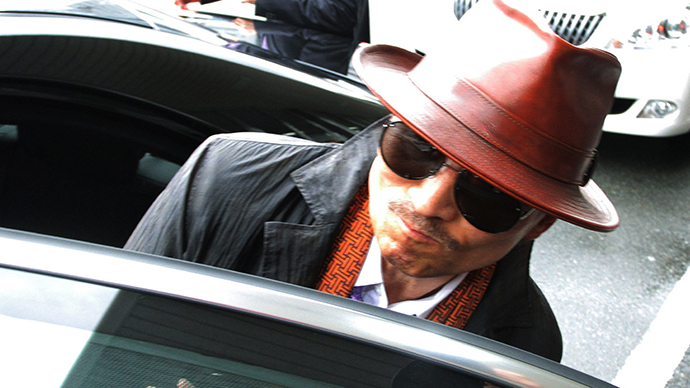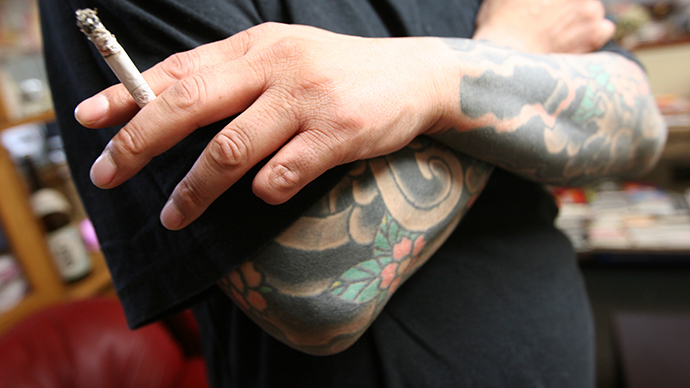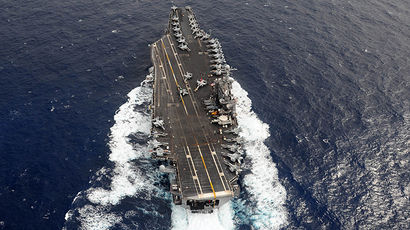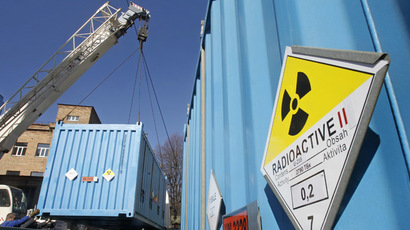Japan’s largest yakuza family launches own website amid falling membership

The Yamaguchi-gumi, the biggest yakuza group in Japan, has launched its own website with a welcoming song and an anti-drug message. The PR campaign comes amid the mafia’s weakening public image, falling membership, and police crackdown.
At first glance of the website, which welcomes visitors with a sign reading
"Banish Drugs and Purify the Nation League," one would
not think that it represents a criminal organization.
However, the site was created by members of the Yamaguchi-gumi,
Japan's largest mafia group, which is involved in activities
ranging from prostitution to extortion and white-collar crime.
At the top of the homepage is a video depicting a pilgrimage to a
shrine by top echelon members, including its head Shinobu
Tsukasa.
The footage is accompanied by a folk-style theme song, called
Ninkyo Hitosuji, which celebrates manhood and the life of a
yakuza member. The ideal of this manhood has been glorified in
various Japanese Ninkyo eiga, or ‘Chivalry films,’ dedicated to
an image of a noble yakuza.
The webpage also has sections that offer glimpses into the
everyday life of the group – a video showing its members pounding
sticky rice for a New Year festival and photos of the emergency
relief provided by Yamaguchi-gumi after the Kobe earthquake in
1993 and after the Tohoku earthquake in 2011.
Experts say the group has created the site in an effort to revamp
its image of “anti-social forces,” as it was branded by the
police, and emerge instead as a humanitarian organization.
"By presenting an anti-drugs theme, it shows concern for
social welfare [and] it shows pictures of the group doing
emergency relief after the [Fukushima] and Kobe
earthquakes," said Jake Adelstein, a journalist and author
who has written extensively on organized crime in Japan.
"The yakuza motto is 'help the weak and fight the strong.' In
practice, it's usually the reverse."
Others consider that the organization established the website as
a reminder of its roots. The anti-drug campaign was first
launched in 1963 by former oyabun (“father figure”) of
Yamaguchi-gumi Kazuo Taoka who reportedly had strong opinion
about drug use, according to Mai-nichi newspaper. The campaign
was “dedicated to the eradication of amphetamine abuse.”
Amphetamine-based stimulants came onto the Japanese market in
1931 and were applied to everything from fighting low blood
pressure to motivating kamikaze pilots. At the end of WWII, the
drugs were popular in combating fatigue and hunger. Meth addicts
were hard to control as they committed a number of horrifying
crimes.
Mai-nichi explained Taoka’s firm stance against drugs by saying
that "after the war, many of [Yamaguchi-gumi] members began
taking narcotics and about ten of [Taoka] top lieutenants became
narcotic addicts.”
The current oyabun, Tsukasa Shinobu, reportedly shares the views
of his predecessor. Thus, the site may have been launched to
remind Yamaguchi-gumi members to behave themselves.
Drug use among the yakuza is frowned upon, and is considered to
be a far worse crime than prostitution, gambling, or
blackmailing. The group believes that using illegal drugs
“creates a weak country” and goes against the
characteristics of a noble yakuza.

The Japanese yakuza is considered one of the most feared criminal syndicates in the world, as well as the richest one. Members do not shy away from the public and have office buildings, business cards, and even fan magazines.
From 1992 to 2010, the number of yakuza members and associates remained steady at roughly 80,000, according to the National Police Agency.
However, as a result of security crackdowns and the tightening of laws, the criminal syndicate has fallen in numbers. The number of members fell to an all-time low in 2013, slipping below the 60,000-member mark for the first time on record, police said.
The Yamaguchi-gumi, based in the city of Kobe in western, Japan took a hit last year. It has for decades been the largest syndicate, but according to Japan's police agency, it lost 2,000 members from the previous year, with 25,700 gangsters on staff in 2013.
Police said they suspect the site may signal that the group is expanding its operations.














